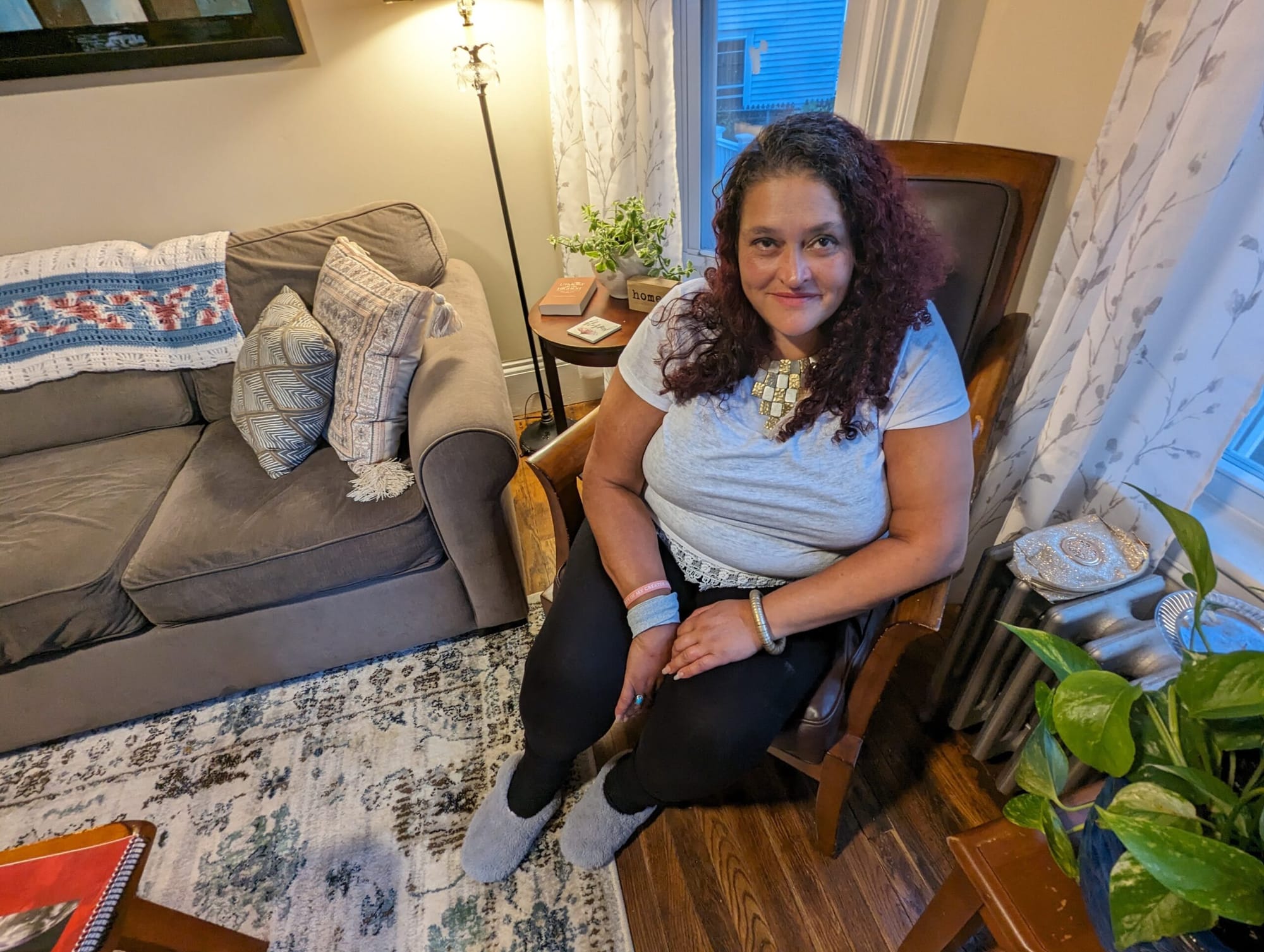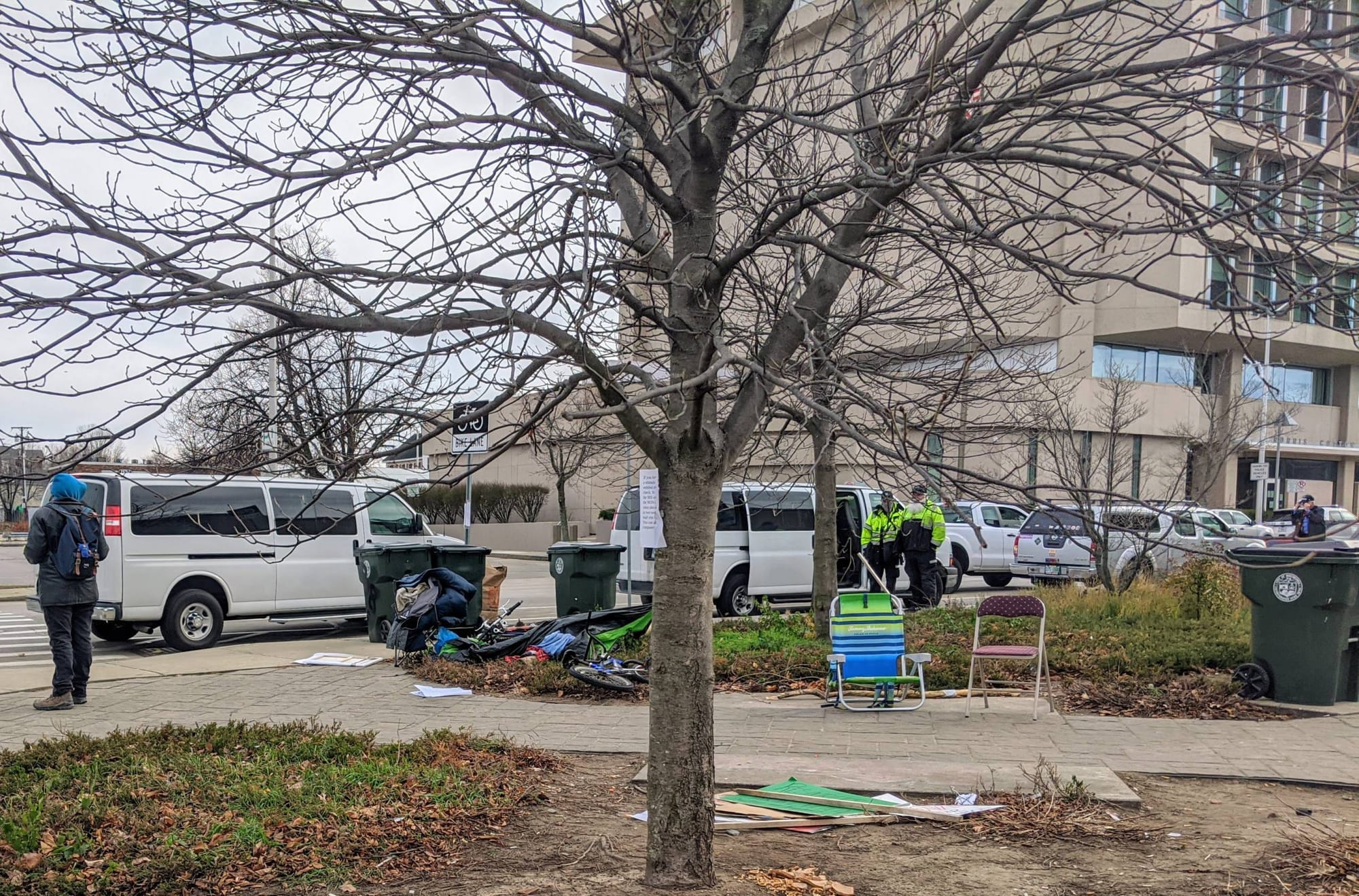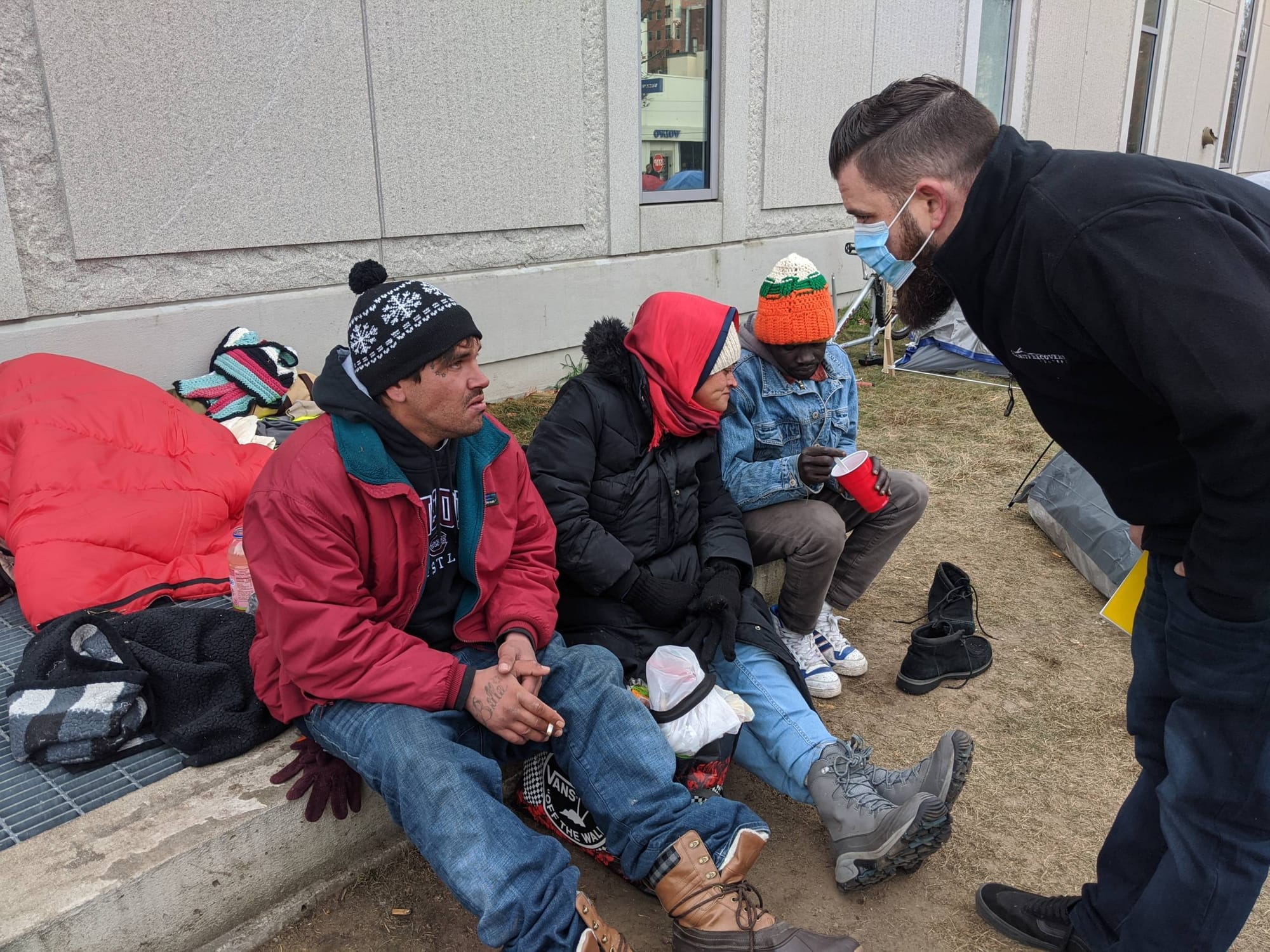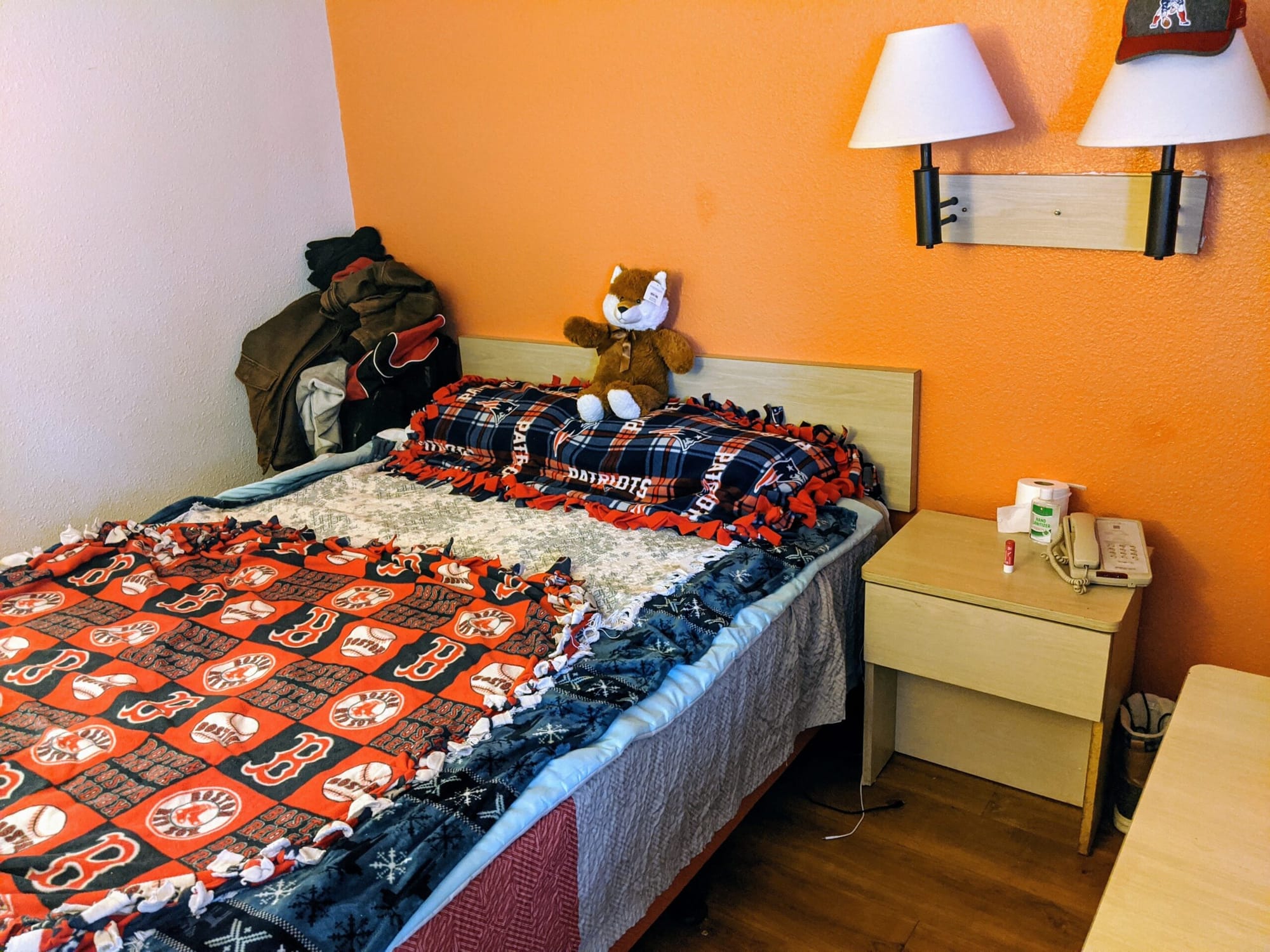3 years after she was swept from the courthouse homeless encampment, Lexi still struggles for survival
Three years ago I met Lexi Ramirez, who was among those people who were camped out at the Hillsborough Couty Courthouse because they had no place else to go. On Nov. 19 Gov. Sununu “solved” the problem when he paid Eric Spofford, formerly of Granite House, to take people away in vans and put them up

MANCHESTER, NH – I’ve fallen behind in writing the stories of our city. I apologize.
- A great little business update about Green Envy on Elm Street is waiting for my attention.
- There are three ribbon-cuttings this week for amazing new spaces opening up in our downtown, all of which I may or may not get to write about immediately.
- Our general election voters guide needs updating for the full slate of candidates, and the time it will take me to aggregate the information into our system means several hours of concentration.
- The new Engagement Center next to the Beech Street shelter opened a week ago and I haven’t been able to finish writing the story. It’s complicated. Not the idea of it, but the people whose lives hang in the balance.
That’s the part I’m stuck on.
Three years ago I met Lexi Ramirez, who was among those people who were camped out at the Hillsborough Couty Courthouse because they had no place else to go. On Nov. 19 Gov. Sununu “solved” the problem when he paid Eric Spofford, formerly of Granite House, to take people away in vans and put them up at his place in Derry. Lexi and about 30 others were whisked away and told they could stay for three months.
But within a few weeks the state let them know the money had run dry. They’d have to move on by Dec. 31.
Happy New Year, and all that.
At the time Lexi was with a companion named Brandon McNeil. Although they managed to stay together and sober for a few months despite having to move again, things disintegrated quickly by spring and, within less than a year, McNeil was arrested and living at Valley Street Jail, charged in connection with a beating at Victory Park in October of 2021 that resulted in the death of Brian Berlo.
Although they are no longer together, Lexi still hears from him occasionally.
“He should have been out by now but he keeps getting in trouble,” she says. That was part of her problem while living with Brandon, and why she eventually said goodbye.




All Lexi wants is a place to call home
Over these past three years, Lexi has been mostly on her own and struggling to find a permanent home. She is disabled – she lost all the toes on her left foot to cancer several years ago – an autoimmune disease called pyoderma gangrenosum which causes gaping painful ulcerated sores. Lexi’s doctor at the time, who is no longer practicing, told her that the disease turned into cancer and that’s how she lost her toes. She has relapsed. This time the disease is trying to eat her right foot away. It’s been several months and it won’t heal. She’s afraid of losing her leg. It has been hard enough to be homeless while hobbling on one good foot.
In between the courthouse lawn three years ago and Southern New Hampshire Medical Center, where she was admitted on Saturday, there have been glimpses of stability and sobriety.
But the temporary situation she worked out when she left the sober home had gone sour. That’s why I was relieved when I found out she was admitted to the hospital.
I didn’t think she was going to make it through the weekend.
Last Friday night Lexi sent me a message on Facebook: “Carol, I just want to say goodbye I decided to take my life.” She was tired of the pain; tired of living nowhere, from out of a bag, of having nothing to call her own; of feeling like her life didn’t matter to anyone.
I gave her some numbers to call – 211, a statewide human resources hotline, and 988 for the suicide prevention line. “Call the police if you have to and tell them you are in a desperate situation,” I told her.
She was in Wilton and I was miles away in Portsmouth for the night.
On Saturday she called me from Southern New Hampshire Medical Center. She sounded better. They were treating her sores and connecting her with a social worker.
Today I’m writing this story with hope that someone has a solution.
It has been four months since I reconnected with Lexi. On June 13 an Ink Link reader who is also a friend of her family, reached out to me. She asked if there was anything I could do to help Lexi. She had been providing home care to an elderly gent. When he passed away, Lexi lost her living arrangement – it wasn’t ideal, but it was a place to stay. Lexi said she was promised by the family that some of her compensation would be put aside for a deposit on an apartment when she was ready to leave. That turned out to be an empty promise.We met up and I got caught up with her. She was about to celebrate her birthday in early August. At 52, she said her years of homelessness had to be over. “I can’t do it anymore. I can hardly walk now,” she told me.
Nine days later she was accepted into a faith-based sober living situation in Manchester. It just so happened there was an open bed when I called.
She was excited about the new chapter, enjoying sobriety for the first time in years. But once she got settled in there and began treatment for her foot, the bloodwork showed she also had congestive heart failure. That explained why her legs were swelling and she couldn’t muster the energy to do things.
Navigating her second-floor bedroom and the fatigue from her foot infection and heart issues meant she couldn’t maintain the required schedule of meetings and devotional sessions required by the program.
“I feel exhausted all the time,” she told me during an open house at the sober home my husband and I attended on Aug. 29.
A trip to a dermatologist early on in her stay there resulted in that doctor insulting her for her homeless condition and basically refusing treatment – this was corroborated by the staff at the sober home, who say they “were horrified” a physician would behave in this way.
Several trips to the emergency room over concern for her unhealed sores left her sitting for hours without anyone taking care of her -and no pain relief. The hospitals are short-staffed and overwhelmed right now and her condition, although serious and painful, doesn’t boost her to the front of the line in a triage situation.
The staff at the sober home felt her best recourse would be to go to a nursing home until she was in better health.
The director of the sober house said Lexi was told she had to go through wound care to get to a nursing home, but that she “was regularly not following doctor’s orders,” and that’s why she was getting worse.
Lexi says that’s not a fair assessment.
She was taking care of dressing her own wounds and knew from past experience what worked, and what didn’t. She was seeing a rotation of ER doctors, none of whom seemed to understand her situation; she knew she needed a specialist. But as a homeless woman who’s used to feeling invisible, nobody seemed to hear her pain or understand her fear.

Rules are rules
Lexi would have stayed at the sober house if she could. She was getting along with the other women and even enjoyed the daily Bible study. She felt comfortable for the first time in years. She hoped they would make an exception and excuse her from the afternoon sessions which covered things like cooking and budgeting, because she says those are things she already knows how to do.
Again, somewhere in the middle of both sides are the reasons why Lexi – and why many others like her find themselves in a chronic state of homelessness.
Nashua Alderman Tom Lopez says it’s a real problem, one that in some ways seems to be getting worse.
“A hospital should not be allowed to put people with acute medical problems on the street,” Lopez said. “We’re seeing a massive surge in elderly people who have medical complications and can’t really make it in a shelter.”
It’s a statewide lack of medical respite care and coordination that causes this chaos for someone like Lexi.

“We organized Safe Station here for one reason: the hospital was ejecting people with medical needs back to the streets. But then the governor initiated the Doorway through Southern NH Medical Center, and the hours of operation were reduced from 24/7 to 9-5, five days a week. The only partner Nashus Fire had for Safe Station was no longer available, so it stopped,” Lopez says.
He’s been in the trenches of his city’s homeless situation for over a dozen years, working at Nashua’s small soup kitchen before becoming shelter manager when it expanded and moved to a larger location. As an alderman, Lopez continues to make noise about the gaping holes in the system.
He advised me to have Lexi call the Coordinated Entry Line and tell them her situation.
“The whole experience becomes one of dismissals and gaps in services. It’s dehumanizing,” Lopez says. “But these are stories that matter, so keep telling them,” he says after I explained Lexi’s journey – thinking maybe he knew someone in Nashua who could help her before discharge day.
“There are a lot of us like you, who know these stories and try to help people one on one, but there are few good options. It’s frustrating, but don’t give up,” he says. “Politicians and people need to know that the system isn’t working.”
- Related stories
- Homeless rights activists remember 2020 courthouse camp eviction 2021/11/22
- ‘All we need is a chance’: Couple moved from courthouse tent facing uncertainty again, as state funds dry up 2020/12/12
- State dismantles courthouse camp, city coordinating plans for as many emergency beds as possible 2020/11/20
- State Police, DHHS arrive to evacuate courthouse camp 2020/11/20
- Activists surround homeless camp on courthouse lawn: ‘We are the perimeter for our unhoused neighbors’ 2020/11/16
- State orders homeless to vacate courthouse property by Nov. 16 2020/11/06
- The Soapbox: Dear State of NH – address the tent city on your courthouse property and fix this broken system 2020/11/02
- No plan in sight for eliminating courthouse homeless camps as Sununu passes buck back to city 2020/10/21
- Lexi and Brandon: A year later, she’s still homeless and he’s in jail
- In the aftermath: State property is secured as city sets up emergency shelter 2020/10/20





